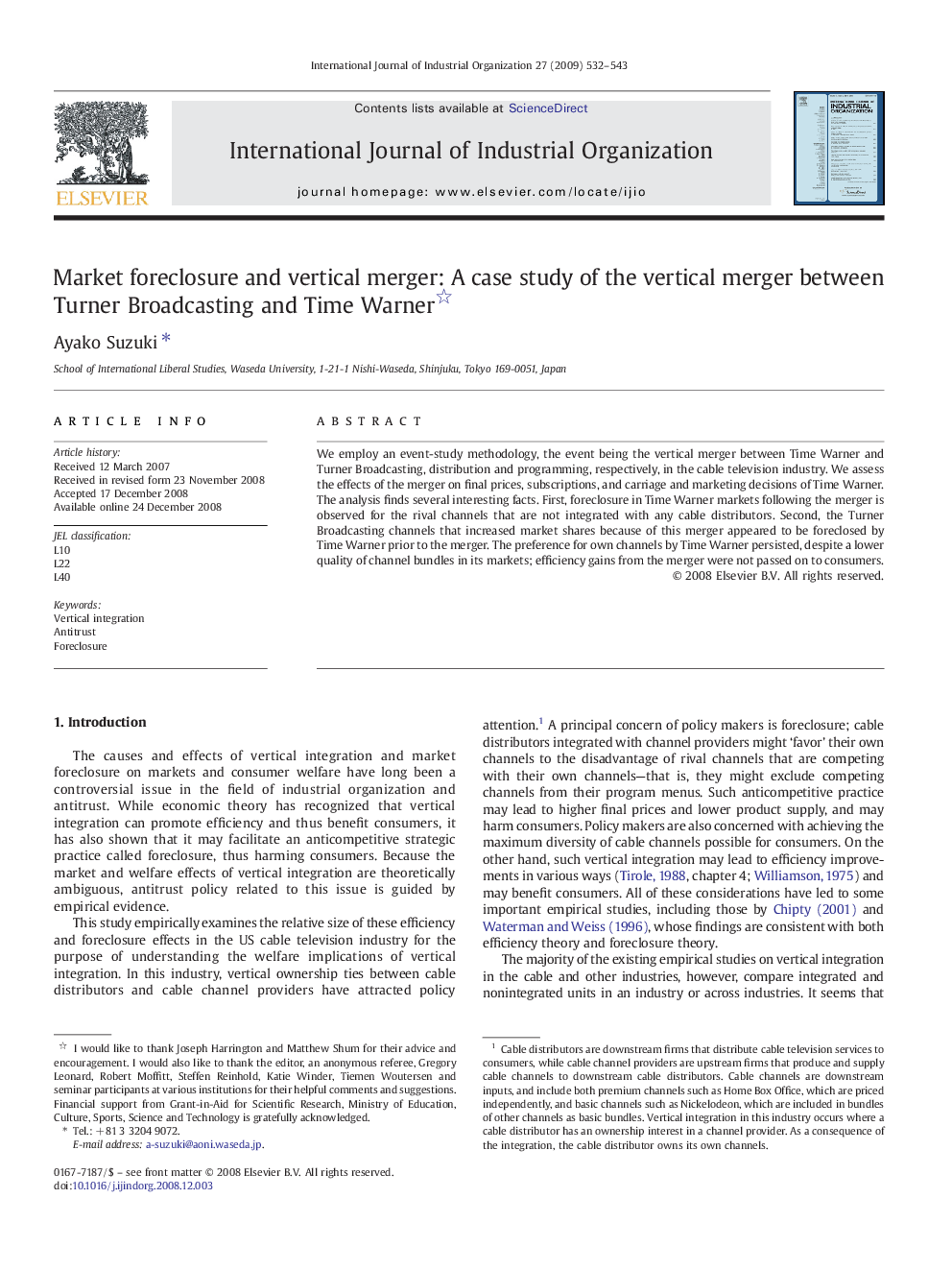| Article ID | Journal | Published Year | Pages | File Type |
|---|---|---|---|---|
| 5078540 | International Journal of Industrial Organization | 2009 | 12 Pages |
Abstract
We employ an event-study methodology, the event being the vertical merger between Time Warner and Turner Broadcasting, distribution and programming, respectively, in the cable television industry. We assess the effects of the merger on final prices, subscriptions, and carriage and marketing decisions of Time Warner. The analysis finds several interesting facts. First, foreclosure in Time Warner markets following the merger is observed for the rival channels that are not integrated with any cable distributors. Second, the Turner Broadcasting channels that increased market shares because of this merger appeared to be foreclosed by Time Warner prior to the merger. The preference for own channels by Time Warner persisted, despite a lower quality of channel bundles in its markets; efficiency gains from the merger were not passed on to consumers.
Related Topics
Social Sciences and Humanities
Economics, Econometrics and Finance
Economics and Econometrics
Authors
Ayako Suzuki,
